Mr President, I am renouncing my Nigerian citizenship and this is why
At least two million souls perished during the Biafra war – some put the figure as high as six million. But for Biafrans, their independence is as important now as it was 50 years ago
Your support helps us to tell the story
From reproductive rights to climate change to Big Tech, The Independent is on the ground when the story is developing. Whether it's investigating the financials of Elon Musk's pro-Trump PAC or producing our latest documentary, 'The A Word', which shines a light on the American women fighting for reproductive rights, we know how important it is to parse out the facts from the messaging.
At such a critical moment in US history, we need reporters on the ground. Your donation allows us to keep sending journalists to speak to both sides of the story.
The Independent is trusted by Americans across the entire political spectrum. And unlike many other quality news outlets, we choose not to lock Americans out of our reporting and analysis with paywalls. We believe quality journalism should be available to everyone, paid for by those who can afford it.
Your support makes all the difference.Biafra has, say its supporters, an incontrovertible claim to self-determination. Today it sits within the south-east of modern Nigeria. Previously, it was an independent nation but was subsumed into the Nigerian state when the British amalgamated a number of their West African colonies, largely for administrative convenience. On Nigerian independence in 1960, the British borders remained intact.
Biafrans who seek the right to self-determination argue they have a claim which is as strong as those of the people of East Timor or South Sudan, whose independence has been acknowledged. The right to self-determination remains the most potent human right, which is why it is the first article of the main UN human rights treaties. We hear of independence claims from Catalonia, Quebec and Scotland. Referendums and the democratic process are the accepted way forward for dealing with the right to self-determination.
The Biafran people have been requesting the recognition of their right to self-determination and their right to a referendum, but their calls fall on deaf ears and are little reported. Nigerian territorial integrity provides the counter-argument.
Biafra captured the world’s attention when in 1967 it declared independence and its people were subsequently subjected to a cruel war by the Nigerians. The Biafrans, in truth, didn’t stand a chance, but they sustained their independence for almost three years until they were bombed and starved into submission. The photographs of that conflict, showing the consequences of war and famine, are still among the defining images of post-colonial Africa.
We publish today a powerful letter to President Buhari of Nigeria written by Solomon Egbo, a Biafran now living in the UK, renouncing his Nigerian citizenship. Whether that renunciation is accepted is in the gift of the president. Solomon, now part of the Biafran diaspora, works for the main independence organisation seeking to achieve Biafran self-determination, the Indigenous People of Biafra (Ipob), which has its headquarters in Germany.
Their leader, Nnamdi Kanu, was also a UK citizen. He “disappeared” in 2017 following a military operation against his parents’ home. The Nigerian authorities seek to label both Kanu and Ipob as “terrorists”. The international community rejects that characterisation.
***
Dear President Buhari
I am writing to inform you that I am renouncing my Nigerian citizenship.
I am not Nigerian. I am Biafran. I lived in the country called “Nigeria” for 40 years. Nigeria, as you know, is a country that was created for the administrative convenience of our colonial power, Britain, in 1914. Nigeria is the forced amalgamation of different peoples, different religious groups, different customs and beliefs. Nigeria may have worked for the British but it doesn’t work for the peoples forced to be Nigerians. It does not, and never has, worked for the people of Biafra.
The crimes of Empire are multiple, but surely the biggest crime of all was that, on independence, Africa was forced to retain those colonial boundaries imposed by Europeans. By accepting this post-Colonial settlement, African leaders became complicit in the oppression of Africa. Your determination to maintain the borders of Nigeria imposed by the British simply reinforces their dominion over us.
As you know, Biafra existed before the British turned up. Biafra is that landmass that nestles around the Niger Delta. To all intents and purposes, Biafra is the south east corner of modern day Nigeria. Despite colonisation and being forcibly absorbed into Nigeria, we Biafrans retained our common values and a shared sense of identity. Biafrans are made up of different people, but we are all Biafrans.
We don’t all speak the same language. I am an Igbo speaker. Other Biafrans speak Urhobo-Isoko, Ijaw-Epie-Ogbia, Ogoni, Efik, Annang, Eket-, Oron-Ibibio, Ogoja, Ejagham, Igala, Idoma, Ibani and Igbanke among others. Biafra is made up of the following provinces: Rivers Province, Cross River, Akwa Ibom, Ebonyi, Imo, Anambra, Abia, Enugu, Bayelsa, Delta. I am an Igbo from Biafra. Being Igbo and Biafran is synonymous.
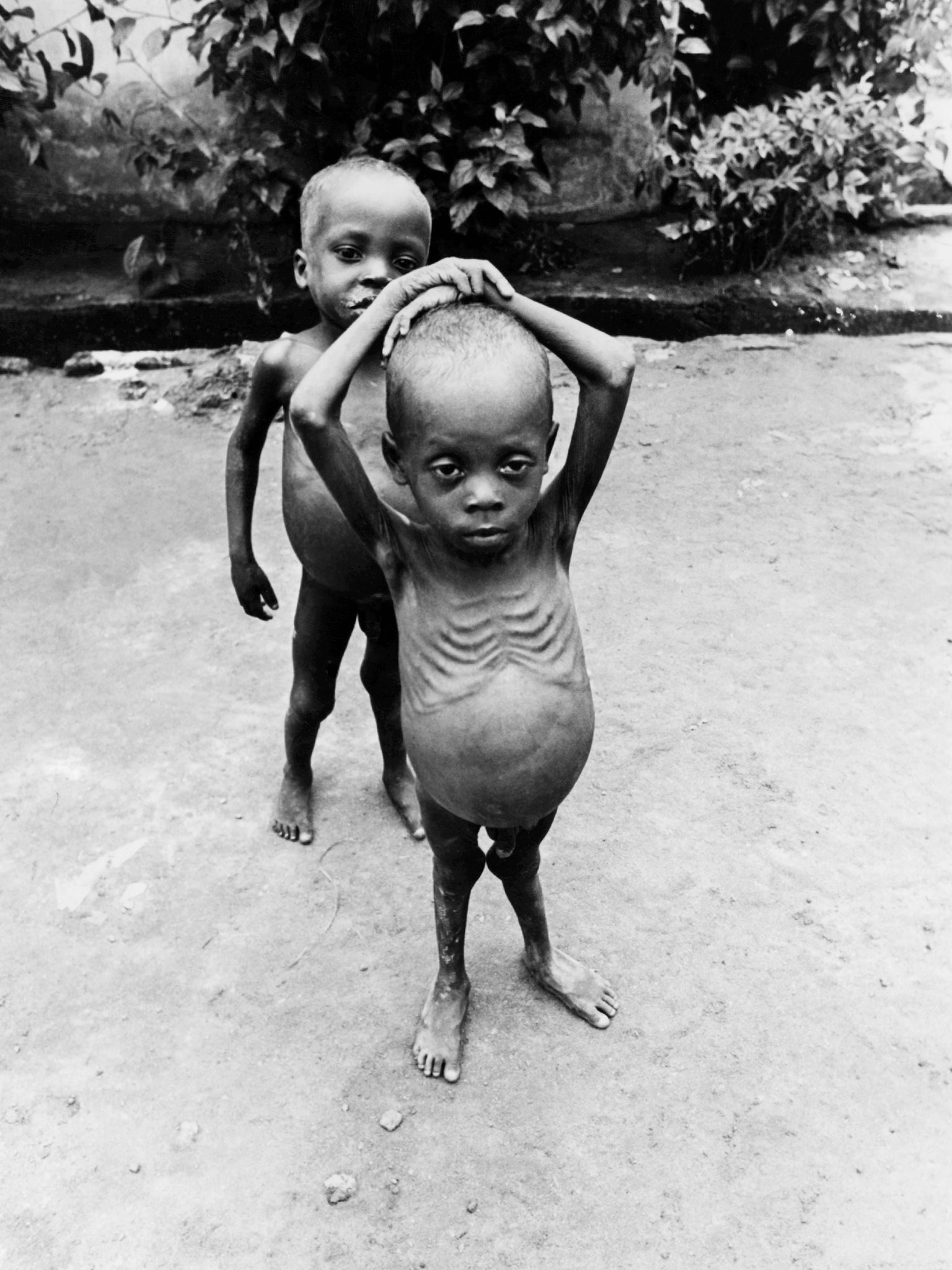
The Igbo people did not do well out of the British. Colonisation was hugely disruptive. As a consequence of British policies, we were scattered across Nigeria and then, on independence, we were marginalised. Many Igbo had been settled into the northern states of modern-day Nigeria and barely before the ink was dry on Nigerian independence, the intimidation and attacks began. Massacre after massacre drove the Igbo people from the northern states. The northern elites were in control. You know this. You are part of that elite. As you know, our access to government was blocked by your people. On 30 May 1967 we had had enough and declared an independent state of our own, Biafra. We had no choice.
The world knows the war that resulted in Biafra because of those photographs of starving, pot-bellied children. Post-colonial Africa is still defined and haunted by those images. That starvation was reality for my family. The Nigerian government’s response to our declaration of secession was to attack with all its might. Biafrans fought with the few weapons we had. I look back at those Biafrans who fought for their survival with such pride.
They were up against a highly trained Nigerian army with the latest weaponry. The British had formed an unholy alliance with the Soviet Union to ensure that Nigerian state forces would prevail. Biafra was but a pawn in the global politics of the time. All that mattered was who controlled Nigeria. But you know all of this. You were there. It was during this war that you made your name.
For nearly three years the Biafrans held out. Surrounded, our hospitals and homes bombed by Soviet-supplied aircraft, until a deliberate policy of starvation forced Biafra to surrender and be absorbed back into Nigeria – we know it was deliberate because at a peace conference in 1968 the leader of the Nigerian delegation said “starvation is a legitimate weapon of war and we have every intention of using it against the rebels”.
The most bitter part of it is that most of Africa and the world stood by and watched this wanton destruction of human lives, the raping, the sacking and plundering of towns, villages, community after community in Biafra and elsewhere. At least two million souls perished, and the UN did not lift a finger. Some put the figure as high as six million. What is not in dispute is that as many as 12,000 starving Biafrans were dying each day.
And you, President Buhari, played your own part in this war, commanding a sector along the Oji River to stop food supplies from entering Biafra. Later you reportedly said that you had no regrets and owe no apologies.
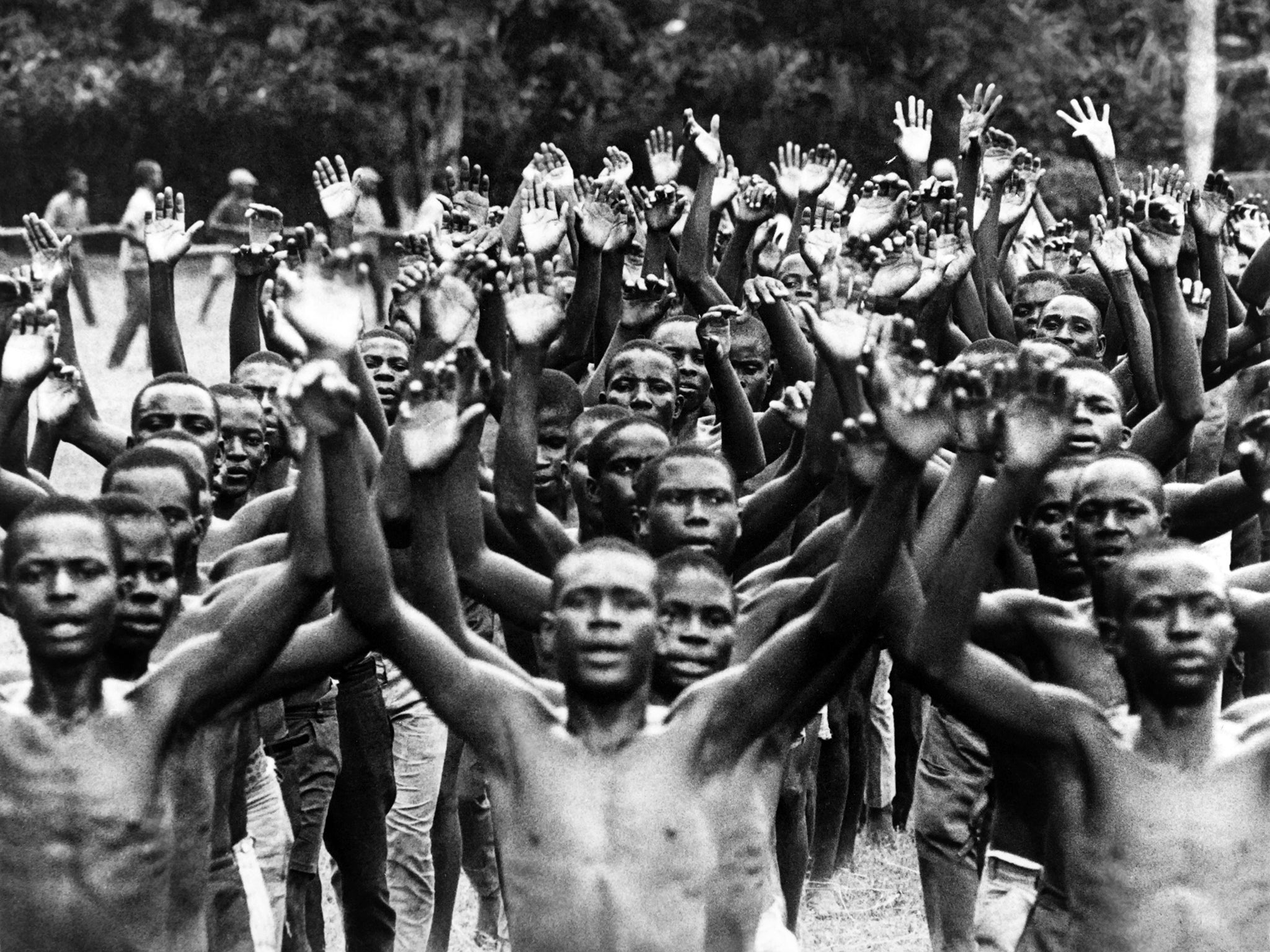
It is incomprehensible to me that Nigeria got away with the crimes that were perpetrated against Biafra and then demanded that we remain part of the same country. The raped being forced to remain with the rapist. We did not want to be part of your country. We had no choice. In many ways the “peace” afterwards was worse than war. Those who had fled their homes found them occupied by incomers when they returned.
Our parents’ jobs were taken away from them, what little money we had left we lost through the issue of a new Nigerian currency which meant that Biafran supplies of the old currency were not honoured. Many, many Igbos left the country where they had no future and made their homes across the world. For decades Biafra became just a memory, and one that could not even be spoken about.
“Hold your ears,” my late dad told me once. It was a Sunday afternoon. I was just a boy. We were sitting together on one of his special chairs covered in animal skins. He leaned closer. “You are not allowed to discuss Biafra publicly.”
Quickly my response was, “Why papa?”
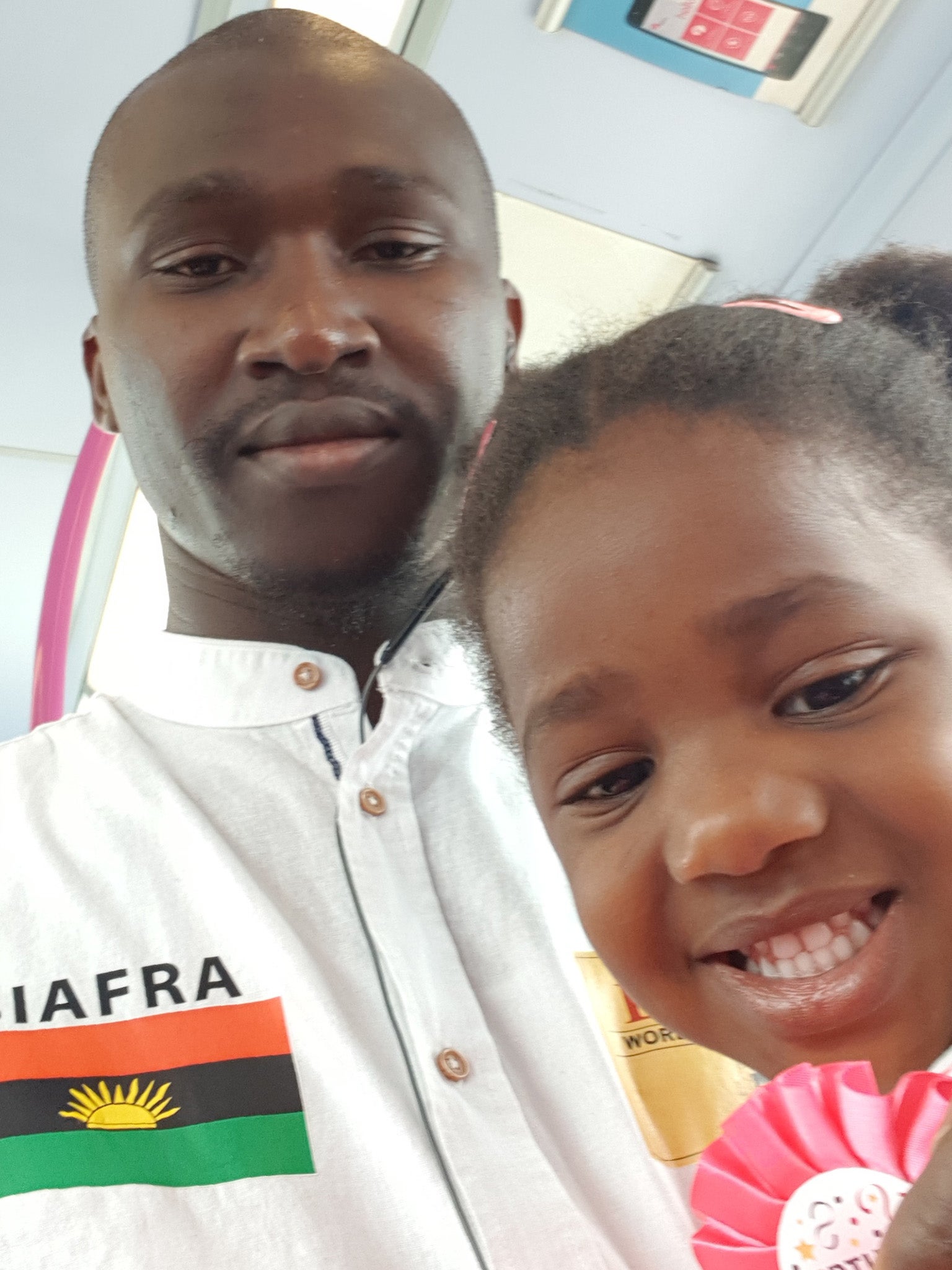
“They might kill you or you might spend the rest of your life in prison.”
My parents suffered terribly during the Biafra war. They were the victims of the policies that the Nigerian authorities instigated. My uncles and most of my grandparents did not survive: beaten, starved, shot, bombed out of their homes, the women of my family raped by Nigerian soldiers. They were so hungry my mum and late dad were forced to drink urine to survive.
My mum could barely speak about what had happened. Tears would choke her. I knew some of this, but, like anyone, I wanted to know more. I wanted to know the history of my people, the Igbo, the Biafran people, before the British came, before the forced amalgamation of populations and in that brief moment when Biafra was free after independence. However, it was a big shock to me – it was one hell of a shock – to find out I could lose my life if I dared mention Biafra publicly.
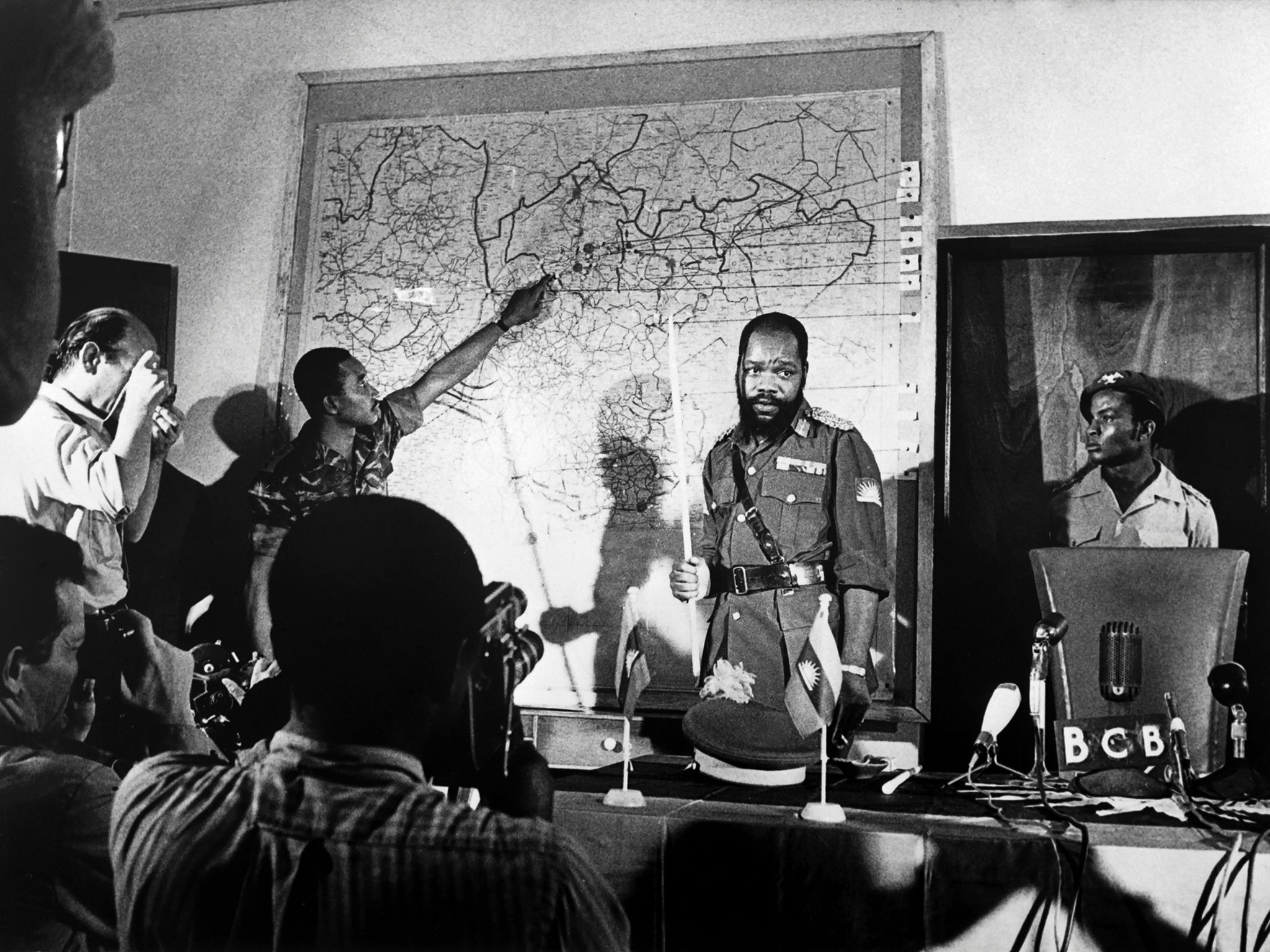
Yet within my family, it is the mention of your name that causes contempt. We despise you and all you represent. You are the symbol of our persecution; our bogeyman.
I had no future in Nigeria. Igbo who identify as Biafrans have no place in Nigeria. I came to live in Britain in 2013. I am grateful to Britain for providing me and my family a home. The irony is not lost on me that Britain, which, 50 years ago, aided my parents’ enemies – people like you – is now a place of sanctuary for me. In 2015 I began my work with the Ipob. I am based in Manchester but we are a global movement. There is a huge Biafran diaspora. It is wonderful to see so many of Britain’s rising stars are of Biafran (and Igbo) origins. People such as Chuka Umunna and Chiwetel Ejiofor have family ties to Biafra.
Ipob’s mission is simple. Our struggle is to have the right to self-determination of the Biafran people recognised. We are calling for a referendum. It is for the people of Biafra to decide, but I hope that self-determination means independence. Fifty years ago, we were forced to fight for Biafran independence. Today we battle with words and music and with our bodies and our lives, but not weapons. We reject violence. We put our faith in human rights. It is the ballot box, not bullets, which will guarantee our liberation.
You and the state that you preside over reject human rights. Your instinct is to resort to force – lethal force. Which of the atrocities that the Nigerian state has committed against Biafrans since you became president in 2015 has been the worst? People have been imprisoned. There have been killings of supporters of Biafran independence – many of them, perhaps up to two thousand.
Your police and security services do not collect accurate statistics of course. We gather as much information as we can and Amnesty International has also reported on the use of lethal force against Biafrans at major events where hundreds of peaceful protesters have been mown down; but they don't compile statistics across the board as we seek to.
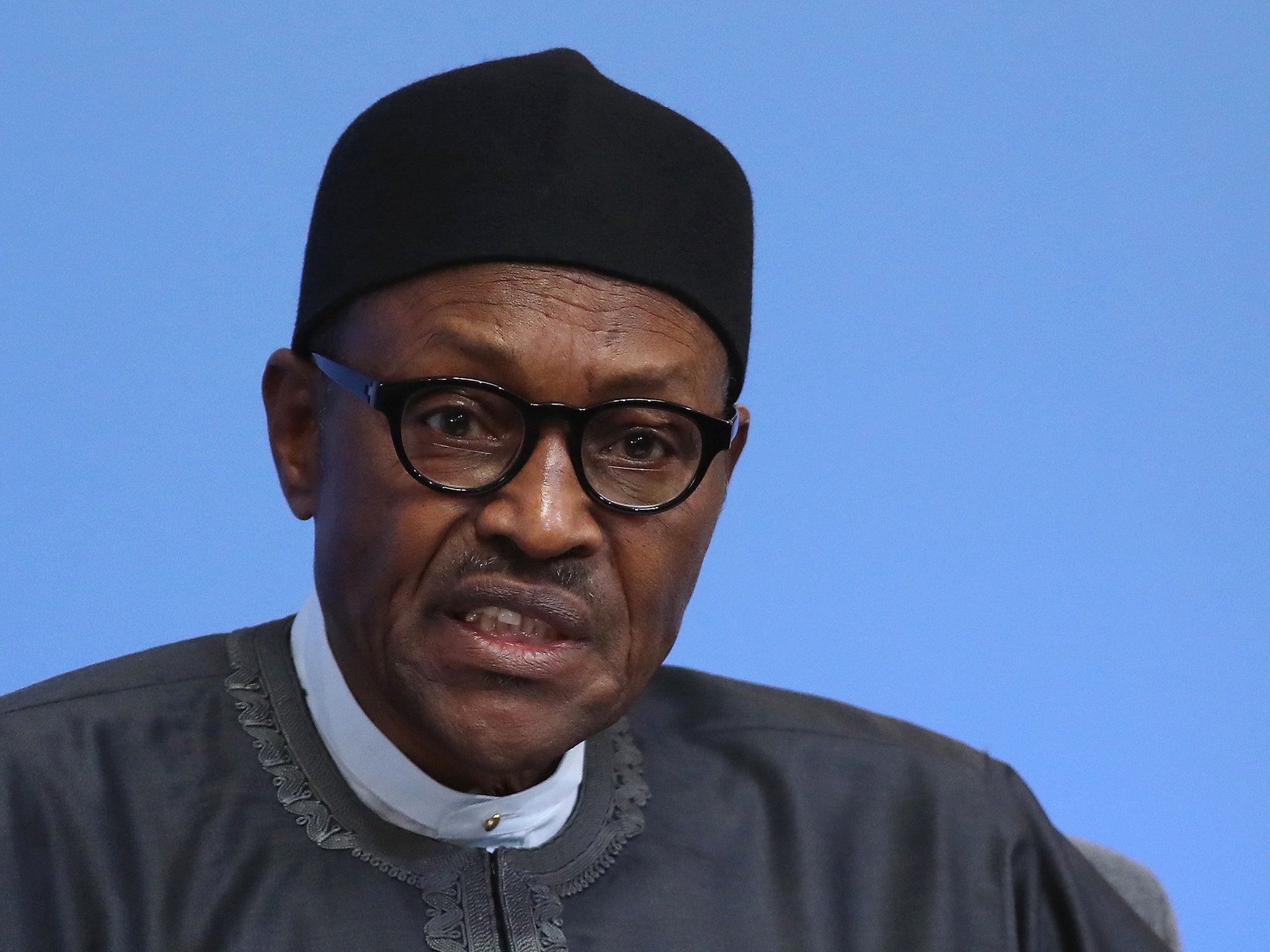
Our leader Nnamdi Kanu was imprisoned on absurd charges of treason in 2015 because he dared to criticise you, President Buhari, and called for a referendum on Biafran self-determination. Your security forces kept him incarcerated without trial until April 2017 when he was finally released on the bail he’d been granted over a year earlier. And then in September of last year the Nigerian Army surrounded the house where he was staying with his parents and attacked with bullets and grenades. Many supporters were killed. Since that day, neither Nnamdi Kanu, nor his mother and father have been seen. The Nigerian forces and the Nigerian government have offered no explanation of what happened. They have been disappeared. We all dread what that means.
You met your match in Nnamdi Kanu. Our leader was a man of such integrity and vision. He united Biafrans in a way that no one had since the war. He inspired us and exalted us. His certainty that we would once again all live in Biafra gave us our purpose. His rejection of violence perplexed you. He could have organised an armed struggle against the Nigerian state.
The extent of the persecution that the Biafran people are subjected to would justify force. Even the Universal Declaration of Human Rights recognises that persecution and denial of rights can leave the oppressed with no choice but to resort to violence, but Nnamdi Kanu, instead, focussed on nation building and creating a blue print for Biafra that respected everyone’s human rights.
While you denied him his rights, he was trying to build a state that would have recognised yours. The reason that there were so many killed when your forces stormed his parents home, is that Biafrans gathered just to be near him. To hear him speak. To be part of his movement.
So, Nnamdi Kanu has been disappeared. Yet you peddle fake news about him and Ipob. Your news agencies report bogus sightings of him from Ghana to London. Our reaction to his disappearance? We have responded with peaceful demonstrations and, as you know, a very successful sit-at-home on 30 May of this year, which brought cities in Biafra, including Port Harcourt, to a stand-still and emptied the iconic Niger River Bridge at Onitsha of traffic.
I am not a fool. In our hearts we all know Nnamdi Kanu’s likely fate and that of his parents, but we are still not able to acknowledge his death. We live in hope. That’s what disappearing people does to the survivors. We delude ourselves. But whatever you have done to him and will do to us, we will not give up on his dream.
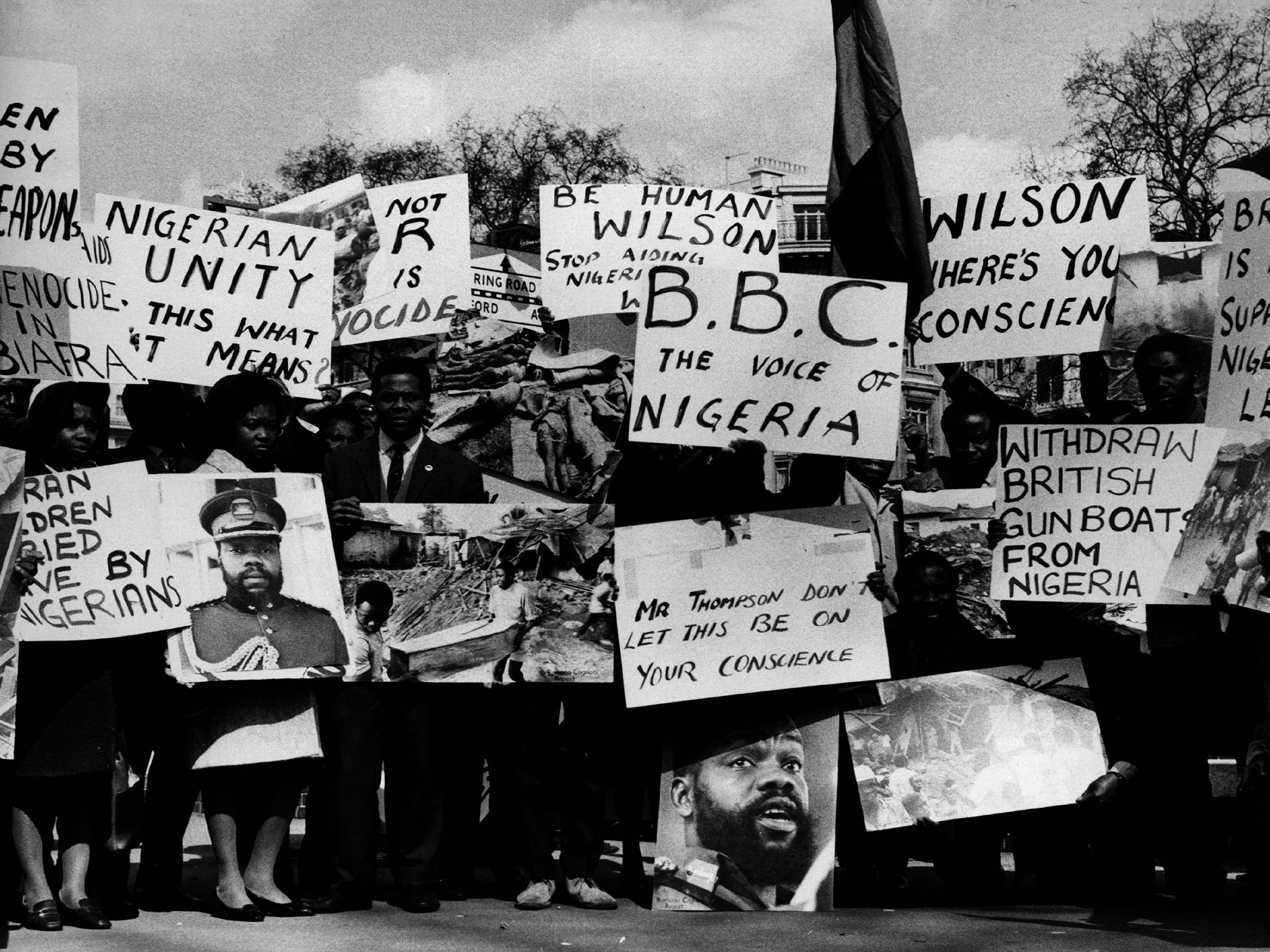
Your Nigerian state’s persecution of us continues. No one is spared. I believe I am trailed even here in the UK by agents of the Nigerian state. You continue with your fake news, desperate to suggest that there are clashes between Ipob and the Nigerian state. Yet Ipob’s response to your violence is to remain passive and to endure. Faced with the level of cruelty that we are subjected to, our belief in non-violence is often tested, but you will not provoke us.
In June you even arrested a member of the Nigerian senate. Senator Abiribe had put up bail for Nnamdi Kanu and was arrested by the Nigerian department for state services for “aiding and sponsoring a proscribed organisation, Ipob”. Senator Abiribe is not only a supporter of Nnamdi Kanu, he has also been critical of government corruption across the board. To justify your treatment of Nnamdi Kanu and Ipob you have attempted to label him and us terrorists. Of course, the international community has rejected the suggestion. Calling for the right to self-determination and a referendum is hardly an act of terrorism.
Yet this is how the Nigerian state under your presidency, Mr Buhari, works. Criticism is branded terrorism, upholding the rule of law is “aiding and sponsoring a proscribed organisation”, calling for Biafran autonomy is characterised as a crime and when a man or woman is arrested, they never really know why, or when they will be released. But they’re lucky: they could be shot in the street without warning.
In 1952, Sir Abubakar Tafawa Balewa, who later became the first prime minister of Nigeria from 1960 to 1966 and a leader of Nigerian Independence – one of your heroes, president Buhari – dismissed out of hand the amalgamation of Nigeria by the British government.
He declared: “[t]he Southern people who are swarming into this region daily in large numbers are really intruders. We don’t want them, and they are not welcome here in the North.” He went on, “since the amalgamation in 1914, the British government has been trying to make Nigeria into one country, but the Nigerian people are different in every way, including religion, custom, language and aspiration. The fact that we are Africans might have misguided the British government. We here in the north take it that Nigerian unity is not for us.”
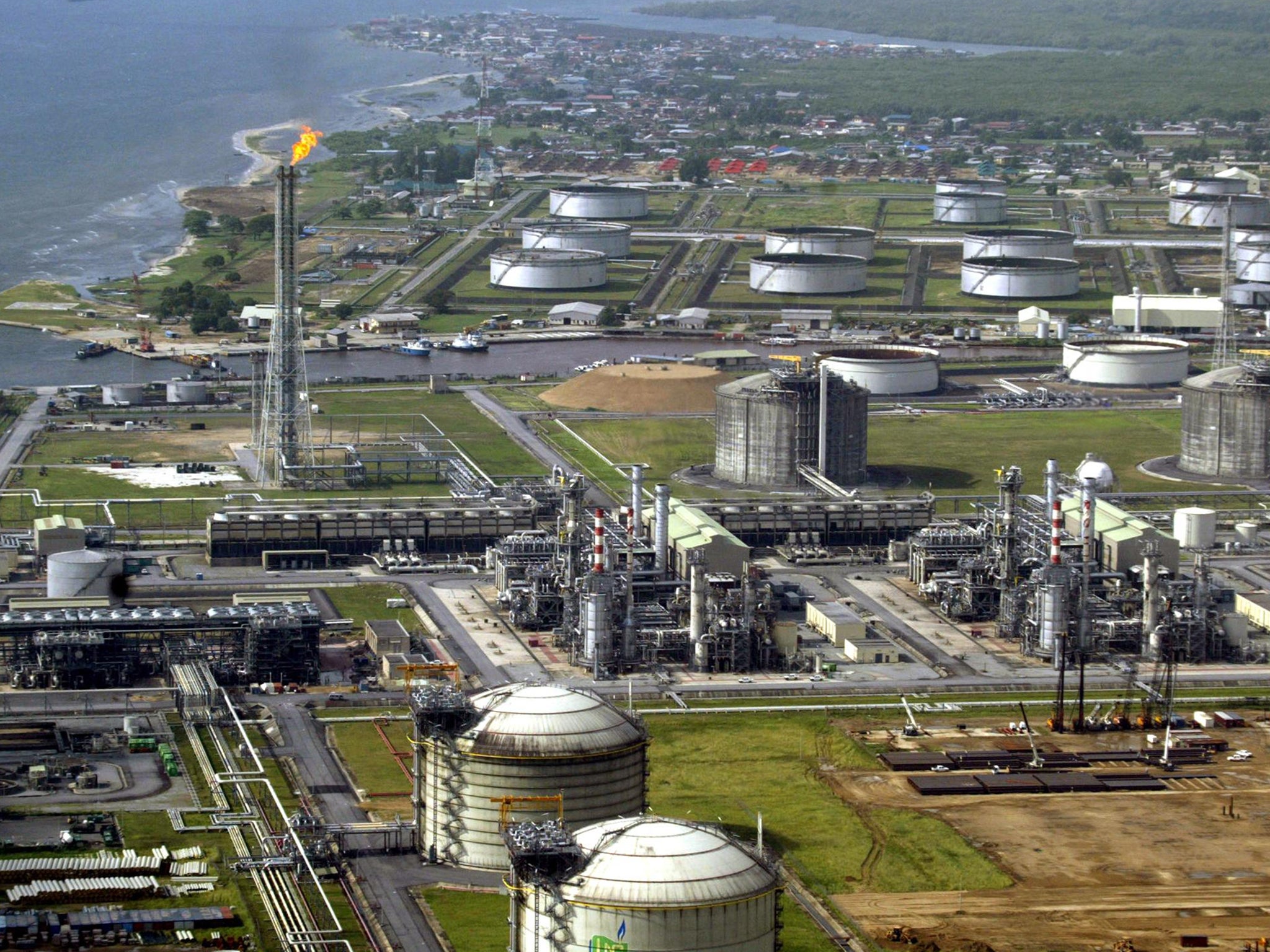
But Biafra was cursed with oil and everything changed. We Igbo people and others in the south-eEast agree with Sir Abubakar Balewa, and we will do everything we can to achieve our dream of self-determination. We urge you, president Buhari, to listen to your hero. We also encourage the British Foreign Office to review its policy on Biafra.
Britain is a contradiction to me. On the one hand the Home Office has provided many Biafrans, like me, with a home and at the same time the Foreign Office stands by the Nigerian state. Is asking for a referendum on Biafran self-determination too much?
Nigeria is an artificial entity. You force people to live there and by doing so you come to embody all the malevolence that is now associated with Nigeria. We bury our children killed by your security forces. Those kids only asked to be acknowledged as Biafrans. We don’t have the Nigerian state on our side, but international law is.
We will hold you and your state to account. You have choices. A great African leader is a benign leader. You should have worked with Nnamdi Kanu to secure Biafra’s right to self-determination. Had you done that the world would have recognised you as a visionary, but instead you force us not to take up arms against you, but to use the law against you. We will win and your legacy will be revealed for what it is.
It is for this reason, president Buhari of Nigeria, that I am renouncing my Nigerian citizenship. I do not want it. I have never wanted it. My parents did not want it. My family do not want it. I have only ever wanted to live free, for my children to grow up in an independent, democratic Biafra, free from corruption and violence, free from bigotry and persecution, free from fear. Just free.
Sincerely
Solomon Uchenna Egbo

Join our commenting forum
Join thought-provoking conversations, follow other Independent readers and see their replies
Comments